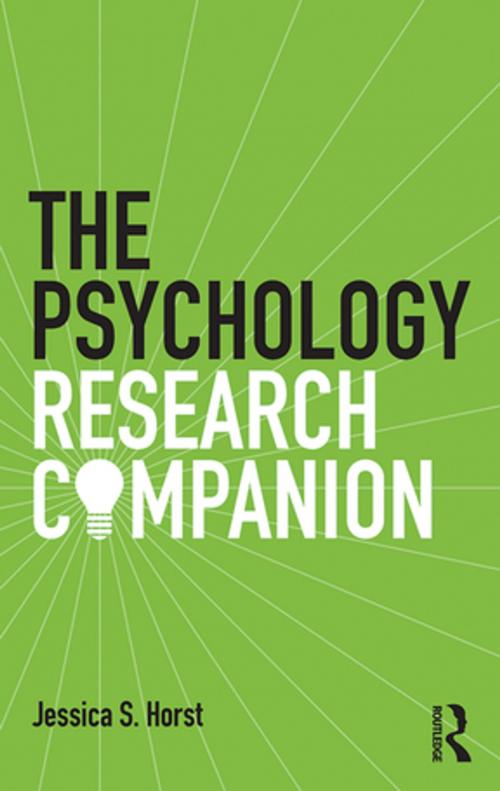The Psychology Research Companion
From student project to working life
Nonfiction, Health & Well Being, Psychology, Research| Author: | Jessica S. Horst | ISBN: | 9781317664864 |
| Publisher: | Taylor and Francis | Publication: | September 21, 2015 |
| Imprint: | Routledge | Language: | English |
| Author: | Jessica S. Horst |
| ISBN: | 9781317664864 |
| Publisher: | Taylor and Francis |
| Publication: | September 21, 2015 |
| Imprint: | Routledge |
| Language: | English |
The Psychology Research Companion: From student project to working life not only gives you the skills and confidence to conduct your psychology research project at university, but is the first book to show how these skills will help you get ahead in your first job in the workplace.
Jessica S. Horst, an American psychologist teaching in the UK, takes you through every step of the research process; from conceiving your research question and choosing a research methodology, to organizing your time and resources effectively. The book includes sections on ethics, data management, working with research participants and report writing, but each chapter is also informed by the wider aim of providing a toolkit for working life. Each chapter is packed with tips and skills that can be taken into the workplace, including working collaboratively and organising your workload, as well as discussing your research project in interview situations and when applying for jobs.
This invaluable guide will appeal to all undergraduate and postgraduate psychology students whose aim is to learn a set of transferable research skills as well as to obtain a good degree result.
The Psychology Research Companion: From student project to working life not only gives you the skills and confidence to conduct your psychology research project at university, but is the first book to show how these skills will help you get ahead in your first job in the workplace.
Jessica S. Horst, an American psychologist teaching in the UK, takes you through every step of the research process; from conceiving your research question and choosing a research methodology, to organizing your time and resources effectively. The book includes sections on ethics, data management, working with research participants and report writing, but each chapter is also informed by the wider aim of providing a toolkit for working life. Each chapter is packed with tips and skills that can be taken into the workplace, including working collaboratively and organising your workload, as well as discussing your research project in interview situations and when applying for jobs.
This invaluable guide will appeal to all undergraduate and postgraduate psychology students whose aim is to learn a set of transferable research skills as well as to obtain a good degree result.















